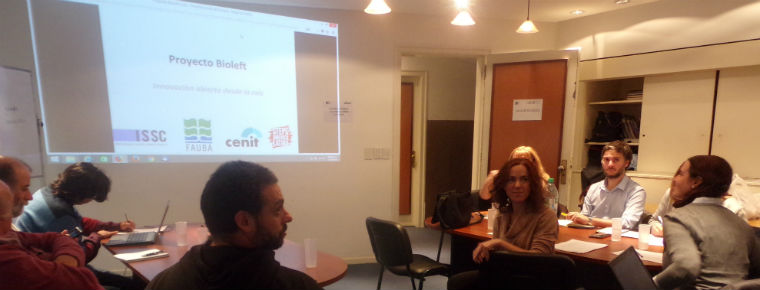Elsevier – one of the largest and most notorious scholarly publishers – are monitoring Open Science in the EU on behalf of the European Commission. Jon Tennant argues that they…
Are Elsevier corrupting open science in Europe?
T-Lab in Buenos Aires: Bioleft, co-designing open source seeds
The Latin America Hub of Pathways to Sustainabilty project is working on a system to protect biological information and ensure its circulation for research and development.
How do we end the dominance of rich countries over sustainability science?
by Patrick van Zwanenberg, Anabel Marin & Adrian Ely With the new Sustainable Development Goals adopted by the UN last year, SciDev.Net has published a timely report on the global…
Opening up science and development in Latin America
STEPS América Latina is the latest regional hub of the Pathways to Sustainability global consortium to be launched. The launch event, which took place on 5-6 November in Buenos Aires,…
BEAM Exchange Research: Call for proposals
BEAM Exchange is investing in a significant research programme to develop new knowledge that is authoritative and accessible around critical questions about market systems approaches. A call for proposals has…
Does social science suffer from ‘physics envy’?
Many social scientists and some humanities scholars suffer from a condition that I like to refer to as ‘physics envy’. The term resonates with Freud’s theory of ‘penis envy’, as…
Multicriteria Mapping meets Operational Research for Development
By Bipashyee Ghosh and Josie Coburn On Thursday (9 July), we facilitated a Multicriteria Mapping workshop as part of a two-day Operational Research for Development workshop, OR: Uplifting Living Conditions,…
STEPS Director Ian Scoones wins ESRC Impact Award
STEPS Director Ian Scoones was a winner of the Outstanding International Impact Award at the ESRC’s 50th anniversary Celebrating Impact Award ceremony, for his work on rural livelihoods in Zimbabwe….
Has the ‘impact agenda’ helped agronomy – or harmed it?
Every agronomist or agricultural research institute with an interest in international development, and who has applied for a research grant in the last 15 years, will have had to develop…
How to redefine innovation & development: an African perspective
This guest post is by Gillian M. Marcelle, STI policy and management scholar, writing in a personal capacity. Too often public policy debates on global issues get framed and defined…
